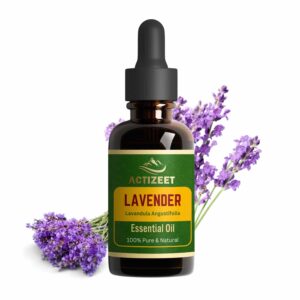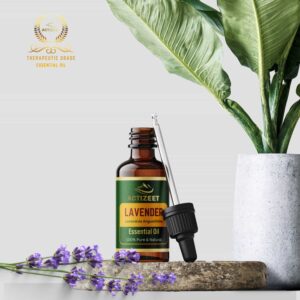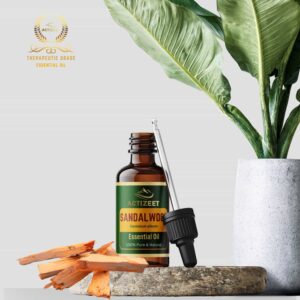Essential oils have been used for centuries as natural remedies for a wide range of ailments, including sleep troubles. Derived from various plant parts through the process of distillation, these highly concentrated oils contain aromatic compounds that possess unique therapeutic properties. Each essential oil has its own distinct fragrance and chemical composition, which determines its specific benefits.
When it comes to sleep, essential oils can help in several ways. Some oils have sedative properties that promote relaxation and calmness, making it easier to drift off into a peaceful slumber.
Others can reduce anxiety and stress levels, which are often the culprits behind restless nights. Moreover, certain essential oils can even regulate the body’s internal clock by synchronizing circadian rhythms.
Table of Contents
ToggleQuality sleep for overall well-being
Sleep is not merely a luxury; it is an absolute necessity for our physical and mental health. Quality sleep plays a crucial role in maintaining overall well-being.
During periods of deep slumber, our bodies repair damaged cells, strengthen the immune system, consolidate memory, and regulate hormone levels. Unfortunately, many people struggle with sleep-related issues such as insomnia or poor sleep quality.
The consequences of insufficient or disrupted sleep go beyond feeling groggy or fatigued during the day; they can negatively impact cognitive function, emotional stability, and immune response, and even increase the risk of chronic conditions like heart disease or obesity. Given this understanding of both essential oils’ therapeutic properties and the significance of quality sleep on our well-being, we can explore how specific essential oils can be your allies in achieving a restful night’s sleep.
Lavender Essential Oil: The Sleep Inducer
Usage of lavender for relaxation and sleep enhancement
Lavender, with its delicate purple flowers and calming fragrance, has a long-standing reputation as a natural remedy for relaxation and sleep enhancement. Its use can be traced back centuries to ancient civilizations such as the Egyptians, Romans, and Greeks. These cultures recognized lavender’s remarkable ability to promote tranquillity and ease restlessness.
In fact, the word “lavender” itself is derived from the Latin word “lavare,” meaning “to wash,” highlighting its historical significance in bathing rituals aimed at inducing a state of calmness before bedtime. Lavender was often added to baths or used as an aromatic oil during massage therapies to soothe the mind and prepare the body for deep slumber.
Chemical components responsible for its sedative effects
The sedative properties of lavender can be attributed to its complex chemical composition. The lavender essential oil contains various active compounds that work synergistically to induce relaxation and promote better sleep. One such compound is linalool, which not only contributes to lavender’s distinctive scent but also acts as a natural sedative by reducing anxiety levels and calming the central nervous system.
Additionally, linalyl acetate is another compound found in lavender that possesses anxiolytic properties, helping to alleviate stress-related sleep disorders. These chemical components work together harmoniously to create a soothing effect on both mind and body.
Different ways to use lavender oil for better sleep
Using lavender essential oil in different ways can maximize its potential benefits for promoting better sleep. One popular method is aromatherapy—inhaling the soothing scent of lavender by adding a few drops of oil into a diffuser or onto your pillowcase before bedtime.
This allows you to experience its calming effects throughout the night. Another option is to create a relaxing lavender-infused bath by adding a few drops of oil to warm water.
The steam from the bath will release the aromatic compounds, creating a peaceful ambience and helping you unwind. For those who prefer topical application, lavender oil can be diluted with a carrier oil, such as jojoba or coconut oil, and gently massaged onto the temples or back of the neck.
This allows for direct absorption into the skin and facilitates relaxation. Experimenting with different methods will help you discover the most effective way to incorporate lavender essential oil into your sleep routine.
Chamomile Essential Oil: Nature’s Tranquilizer
When it comes to finding a natural remedy for sleep troubles, chamomile essential oil is often hailed as nature’s tranquillizer. This sweet-smelling oil has been used for centuries due to its calming properties and its ability to promote deep, restful sleep. Chamomile oil contains compounds like bisabolol and apigenin, which have been found to have sedative effects on the central nervous system.
Chamomile’s Calming Properties and its Impact on Sleep Quality
Chamomile is widely known for its relaxing and soothing qualities. When inhaled or applied topically, chamomile essential oil can help reduce anxiety and promote a sense of peace and tranquillity. The fragrance of chamomile works like magic to calm an overactive mind, allowing you to unwind after a long day.
It can also help ease the symptoms of insomnia by creating an atmosphere conducive to slumber. Studies have suggested that chamomile not only improves overall sleep quality but also reduces the time it takes for individuals to fall asleep.
This makes it an excellent choice for those who struggle with falling asleep or experience interrupted sleep patterns. By incorporating chamomile essential oil into your nighttime routine, you can create a serene environment that signals to your body and mind that it’s time to relax and prepare for a restorative night’s sleep.
Comparison between Roman and German Chamomile Varieties
There are two main types of chamomile utilized in essential oils: Roman chamomile (Anthemis nobilis) and German chamomile (Matricaria recutita). While both varieties offer similar benefits, they differ slightly in terms of their chemical composition and aroma. Roman chamomile tends to have a sweeter, more delicate fragrance.
It is often favoured for its calming and soothing effects on the mind and body. German chamomile, on the other hand, has a stronger, herbaceous aroma.
It is renowned for its anti-inflammatory properties and is commonly used in blends that target muscle tension and pain. When selecting chamomile essential oil for sleep purposes, it ultimately comes down to personal preference.
Some individuals find the scent of Roman chamomile to be more relaxing, while others prefer the earthy aroma of German chamomile. Whichever variety you choose, ensure that it is sourced from a reputable supplier to guarantee its purity and therapeutic benefits.
Tips on Incorporating Chamomile Oil into Your Bedtime Routine
There are various ways you can incorporate chamomile essential oil into your bedtime routine to improve sleep quality:
- Aromatherapy Diffusion: Add a few drops of chamomile oil to an essential oil diffuser in your bedroom before going to bed. The gentle diffusion of this aromatic oil will create a calming ambience that sets the stage for a peaceful night’s sleep.
- Bath Soak: Mix several drops of chamomile essential oil with Epsom salts or carrier oils like coconut or jojoba oil before adding them to your bathwater. The warm water, combined with the soothing scent of chamomile, will help relax both your body and mind.
- Pillow Mist: Create your own pillow mist by diluting a few drops of chamomile essential oil in water or witch hazel and transferring it into a spray bottle. Lightly spritzing your pillow before bedtime will envelop you in the calming aroma of chamomile throughout the night.
- Topical Application: Dilute chamomile essential oil with a carrier oil, such as almond or grapeseed oil, and gently massage it onto your temples, neck, or chest before going to bed. The soothing properties of chamomile will help relax your muscles and prepare you for a peaceful slumber.
Remember that everyone’s body chemistry and preferences are different, so feel free to experiment with different methods until you find what works best for you. Adding chamomile essential oil to your bedtime routine can be a simple yet effective way to unwind and prepare yourself for a restful night’s sleep.
Valerian Root Essential Oil: Deep Slumber Elixir
Valerian root as a traditional remedy for insomnia
When it comes to battling those sleepless nights, Valerian root has been a trusted ally for centuries. This herbaceous plant, known scientifically as Valeriana officinalis, has long been recognized for its ability to promote deep, restful slumber. Valerian root’s use as a sleep aid dates back to ancient Greece and Rome, where it was commonly prescribed by physicians and herbalists to alleviate insomnia and nervousness.
Valerenic acid and other compounds that promote relaxation and induce sleep
The secret behind valerian root’s sleep-inducing powers lies in its unique composition of natural compounds. One of the key players is valerenic acid, which interacts with gamma-aminobutyric acid (GABA) receptors in the brain.
This interaction helps inhibit excessive neuronal activity, leading to a sense of calmness and tranquillity that paves the way for deep slumber. In addition to valerenic acid, valerian root contains several other noteworthy compounds that contribute to its sedative effects.
These include isovaleric acid, which helps relax muscles and reduce tension; bornyl acetate, an anti-anxiety agent; and various volatile oils with relaxing properties. Together, these components work synergistically to support the body’s natural sleep processes.
Precautions when using valerian root oil due to its potent effects
While valerian root can work wonders for improving sleep quality, it’s essential to exercise caution when using this potent elixir. Firstly, pregnant or breastfeeding women should avoid consuming or using valerian root oil due to limited research on its safety during these periods.
Moreover, it’s important not to exceed the recommended dosage of valerian root, as excessive consumption can lead to grogginess and morning drowsiness. It’s also worth noting that valerian root may interact with certain medications, particularly those that depress the central nervous system.
It’s always wise to consult with a healthcare professional or herbalist before incorporating valerian root oil into your sleep routine, especially if you have any pre-existing medical conditions or are taking other medications. By being mindful of these precautions and using valerian root oil responsibly, you can tap into its natural sedative properties and unlock the deep slumber you’ve been longing for.
Bergamot Essential Oil: Stress Reliever & Sleep Enhancer
Bergamot’s mood-balancing properties
When it comes to essential oils that can work wonders in promoting relaxation, bergamot oil takes the spotlight. Derived from the rinds of the citrus fruit known as bergamot orange, this delightful oil boasts impressive mood-balancing properties.
The fragrance of bergamot oil is known to stimulate the release of certain neurotransmitters in our brains, such as serotonin and dopamine, which are responsible for regulating emotions and promoting a sense of well-being. This makes it an exceptional choice for those struggling with stress, anxiety, or mild depression.
Unique benefits of bergamot in reducing anxiety and promoting restful sleep
Bergamot essential oil possesses specific qualities that make it particularly effective in managing anxiety and improving sleep quality. Research suggests that inhaling the aroma of bergamot can help reduce cortisol levels (the stress hormone), providing a calming effect on both mind and body. Additionally, this versatile oil has proven to be an excellent sedative, helping individuals achieve a more restful night’s sleep by quieting racing thoughts and easing tension accumulated throughout the day.
Creative ways to incorporate bergamot oil into your nighttime routine
Looking for creative ways to incorporate bergamot oil into your nighttime routine? Here are a few suggestions:
- Diffuser: Add a few drops of bergamot oil to your diffuser before bedtime. The gentle diffusion will fill the air with its soothing aroma.
- Bath time bliss: Create a calming bath experience by mixing a few drops of bergamot oil with Epsom salts before adding them to your bathwater.
- Pillow spray: Make your own pillow spray by combining a drop or two of bergamot oil with water in a spray bottle. Spritz your pillow and bedding lightly before sleeping to enjoy the relaxing scent.
- Massage oil: Dilute bergamot oil with a carrier oil such as sweet almond or jojoba, and use it for a relaxing self-massage before bed.
Remember, while bergamot essential oil is generally safe for topical use and inhalation, it’s always recommended to perform a patch test and consult with a healthcare professional if you have any underlying health conditions or concerns.
Ylang Ylang Essential Oil: Sweet Dreams Booster
Ylang Ylang’s floral scent and soothing qualities
When it comes to essential oils that can whisk you away into a serene slumber, ylang-ylang stands out with its captivating floral fragrance. Derived from the blossoms of the Cananga odorata tree, native to tropical regions, this oil carries a gentle, sweet aroma that instantly transports you to a tranquil oasis. The scent itself has been admired for centuries for its ability to create an atmosphere of relaxation and calmness.
The soothing qualities of ylang-ylang extend beyond its scent. This versatile essential oil is known for its potential to alleviate anxiety and stress, making it an excellent addition to your sleep routine.
The mere whiff of ylang-ylang can help ease your mind after a long day, preparing you for a restful night’s sleep. Its enchanting aroma not only relaxes your senses but also helps create an ambience conducive to unwinding and letting go of the day’s worries.
The role of ylang ylang in reducing stress levels before bedtime
Ylang ylang possesses remarkable properties that aid in reducing stress levels before bedtime. As stress often robs us of quality sleep, incorporating this oil into your nighttime routine can work wonders.
When we feel stressed or anxious, it becomes challenging to shut off our racing thoughts and enter a state of relaxation necessary for deep sleep. By inhaling or applying diluted ylang ylang essential oil topically, you can help reduce cortisol levels—the hormone associated with stress—in the body.
This natural approach assists in calming your nervous system and promoting a sense of tranquillity before bed. By alleviating stress through the use of this delightful essential oil, you pave the way for much-needed rejuvenation during those precious hours of sleep.
Lesser-known uses of ylang ylang oil beyond aromatherapy
While ylang ylang essential oil is commonly known for its aromatic qualities, it offers more benefits beyond aromatherapy alone. One lesser-known use of this versatile oil is as a natural hair care remedy.
Its nourishing properties can help improve the condition of your hair and scalp. Adding a few drops of diluted ylang ylang oil to your shampoo or creating a DIY hair mask can promote healthy-looking locks and address issues like dryness or dandruff.
Furthermore, this delightful essential oil has also been used for its potential aphrodisiac effects. Known for its ability to induce relaxation and reduce anxiety, ylang ylang may enhance intimacy and promote feelings of sensuality when used in moderation.
Its exotic aroma, combined with its calming properties, creates an alluring ambience that can set the mood for special moments. Whether you’re s
Other Promising Essential Oils for Sleep
The Soothing Scent of Sandalwood
If you’re searching for an essential oil that can transport you to a state of deep relaxation, look no further than sandalwood. This earthy and woody fragrance has been used for centuries in Ayurvedic medicine to induce calmness and promote restful sleep.
The main compound responsible for its sedative effects is santalol, which helps reduce anxiety and stress levels. To experience the benefits of sandalwood, add a few drops to your diffuser before bedtime or dilute it with a carrier oil and apply it topically to your pulse points.
Petitgrain: Nature’s Stress Buster
Derived from the leaves and twigs of the bitter orange tree, petitgrain essential oil offers a unique aroma that can soothe your senses and pave the way to dreamland. Its fresh, citrusy scent contains linalool, which possesses calming properties that help alleviate tension and anxiety. Whether you choose to diffuse petitgrain oil in your bedroom or blend it with carrier oil for a relaxing massage before bed, this underrated essential oil might just become your secret weapon against sleepless nights.
Conclusion
In our quest for quality sleep, exploring the world of essential oils can open up a realm of possibilities. Lavender stands out as a classic choice with its proven ability to induce relaxation, but chamomile, valerian root, bergamot, ylang ylang, sandalwood, and petitgrain also offer promising benefits in promoting restful sleep. Each essential oil carries its own unique aroma and therapeutic properties that cater to individual preferences.
By incorporating these essential oils into your nightly routine through diffusing or topical application (diluted with carrier oils), you have the chance to create a calm and tranquil environment that invites deep rejuvenation. Remember, it’s essential to prioritize sleep and establish healthy bedtime habits.
So, why not embrace the power of natural remedies and let the soothing scents guide you towards a blissful night’s sleep? Rest well, dream big, and wake up refreshed to conquer each new day!
RECOMANDED PRODUCTS
-
Rated 4.72 out of 5
₹1,500.00Original price was: ₹1,500.00.₹1,200.00Current price is: ₹1,200.00. Incl. GST ADD TO CART Buy Now -
Rated 4.88 out of 5
₹1,500.00Original price was: ₹1,500.00.₹1,200.00Current price is: ₹1,200.00. Incl. GST ADD TO CART Buy Now -
Rated 4.63 out of 5
₹1,900.00Original price was: ₹1,900.00.₹1,450.00Current price is: ₹1,450.00. Incl. GST ADD TO CART Buy Now -
Rated 4.74 out of 5
₹1,500.00Original price was: ₹1,500.00.₹1,200.00Current price is: ₹1,200.00. Incl. GST ADD TO CART Buy Now -
Rated 4.72 out of 5
₹2,500.00Original price was: ₹2,500.00.₹1,950.00Current price is: ₹1,950.00. Incl. GST ADD TO CART Buy Now -
Rated 4.88 out of 5
₹1,500.00Original price was: ₹1,500.00.₹1,200.00Current price is: ₹1,200.00. Incl. GST ADD TO CART Buy Now -
Rated 4.80 out of 5
₹1,500.00Original price was: ₹1,500.00.₹1,200.00Current price is: ₹1,200.00. Incl. GST ADD TO CART Buy Now -
Rated 4.88 out of 5
₹1,500.00Original price was: ₹1,500.00.₹1,200.00Current price is: ₹1,200.00. Incl. GST ADD TO CART Buy Now
Related posts:
- Ultimate Guide: Essential Oil for Stress Relief
- Rejuvenate with Essential Oil: Transform Your Bathing Experience
- Optimal Ashwagandha Powder Dosage for Sleep Quality
- Calming Anxiety: Discover the Power of Essential Oil
- Headache Relief: Discover Effective Essential Oils
- Bergamot Essential Oil: The Versatile Elixir for Mind, Body, and Soul
- Unlocking the Secrets: Ylang Ylang Essential Oil Benefits
- Unlocking the Power: How Essential Oils Are Used


















